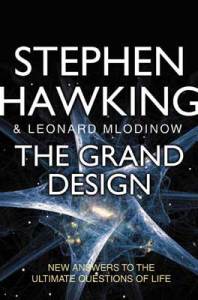 The old adage about London buses holds true in other areas of life, too, it seems. Wait for a book by an eminent physicist and then two come along almost together. Here’s an idea for Harry Hill: which is best, Cycles of Time or Grand Design? There’s only one way to find out …
The old adage about London buses holds true in other areas of life, too, it seems. Wait for a book by an eminent physicist and then two come along almost together. Here’s an idea for Harry Hill: which is best, Cycles of Time or Grand Design? There’s only one way to find out …
I’ve dealt with Roger Penrose’s Cycles of Time elsewhere, but having now read some of Stephen Hawking’s latest, The Grand Design, I must say that Penrose’s book is the better by miles, irrespective of whether his theory is correct; it’s well-written enough that it carries you over the more impenetrable sections, and at the end I felt a great degree of satisfaction that I had seen a little of what’s inside a great scientist’s mind, and knowing the advanced maths is there to hold the whole theory together. At the end of Hawking’s I think I shall just feel relief.
I’d been looking forward to reading it since I first heard it was due, and I was just about to start on it when I got a copy of Cycles of Time a couple of weeks before its publication date, and decided to read that instead. I wish I’d done it the other way round – it’s been a bit like listening to Rite of Spring followed by the Birdie Song.
The first thing that put me of was the physicality of the book – it’s on glossy paper, the sort that makes me think ‘Reader’s Digest’, ‘Time Life’ or ‘National Geographic’, and it smells rather strongly of that sort of manufacturing process.
There are a number of unfunny cartoons, and quite a few colour pictures, many of which are pointless, not actually illustrating the point, some which don’t show the point very clearly (e.g. to illustrate the Ptolemaic universe there’s a small picture of a brass orrery), and some of which actually confuse the point (there’s one to illustrate the standard comparison of the expanding universe to a balloon’s surface, the caption refers to receding galaxies, but the picture shows two balloons, which might well suggest two universes or two galaxies).
Then there’s the writing style: tedious, and in some way condescending. I think that’s due in part to the short sentences; partly to the excruciatingly bad jokes (e.g. ‘Other liquids were observed to behave in a similar fashion, except perhaps wine if you’ve had too much.’); and partly because there are definitions of very basic things which, if you are interested enough to read this book, I would have thought you probably already know, or would have the ability to use a dictionary to find out if you didn’t (e.g. defining ‘atom’ and ‘gravity’). But then some of the explanations are not that easy to follow – for example, their description and explanation of the two-slit experiment is not particularly enlightening compared with several others I have seen. The book has no foot/endnotes, nor are there any references. And the use of Fahrenheit is a little grating.
Lastly, I think the statement upon which the concept of this book is predicated is wrong. In thirty years (or less) people will have added this to the list of things scientists said in the late C19 / early C20 that are funny (heavier than air flight is impossible, science has discovered everything there is to know), or more recently, if apocryphally, that there will never be a demand for more than five computers). M-Theory may well be the ‘theory of everything’ for now (although it’s not for many physicists), but I just can’t see it being the ‘successful conclusion’ of scientific endeavour. The book spends up to the end of Chapter 3 giving a potted history of science and showing how our perception of reality alters as our understanding of the universe improves, and has done so for thousands of years, but then appears to suggest that we will shortly know all there is to know about reality, enough to use M-Theory as a model-dependent explanation of the whole caboodle. But where is there any proof, as yet, that M-Theory (here to include String Theory) has any basis in reality apart from various examples of how the maths actually works? Who’s observed the Multiverse in action yet, outside of Doctor Who or a Michael Moorcock story (or the two combined)? I don’t like the ‘design’ bit of the title, either: it implies a designer.
All in all, this book has been a great disappointment. I’m not sure who it’s aimed at, either. It doesn’t appear to be aimed at the total novice, nor the knowledgeable layman, and certainly not the scientist. I waited until I had written all the above before I looked at the ratings on Amazon. It has 3.5 stars (9 at 5*, and the remaining 15 approximately evenly spread down to 1*); personally I would have given it 1*. It’s 21 in book sales, whereas for interest’s sake (and for all its lack of hype) I see that Cycles of Time is 133 in book sales and has just 1 4* review.
Having scanned through the remaining half of The Grand Design I have decided it’s not going to tell me (or anyone who reads New Scientist with any regularity) anything I don’t already know. Life’s too short. I enjoyed A Brief History of Time when it was first published, although it was often cited as one of the most unfinished books of all time. Grand Design will sit half-read on my shelf, not because of any incomprehension, but because of tedium.




























































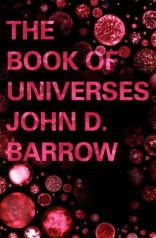



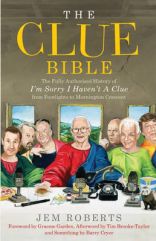
















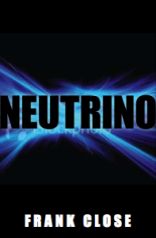








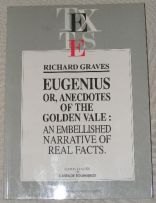











Pingback: Cycles of Time: Roger Penrose at the Royal Institution | Bagotbooks's Blog
Pingback: Tweets that mention Who’s Grand Design is it anyway? Stephen Hawking (and Leonard Mlodinow) produce a big dud | Bagotbooks's Blog -- Topsy.com